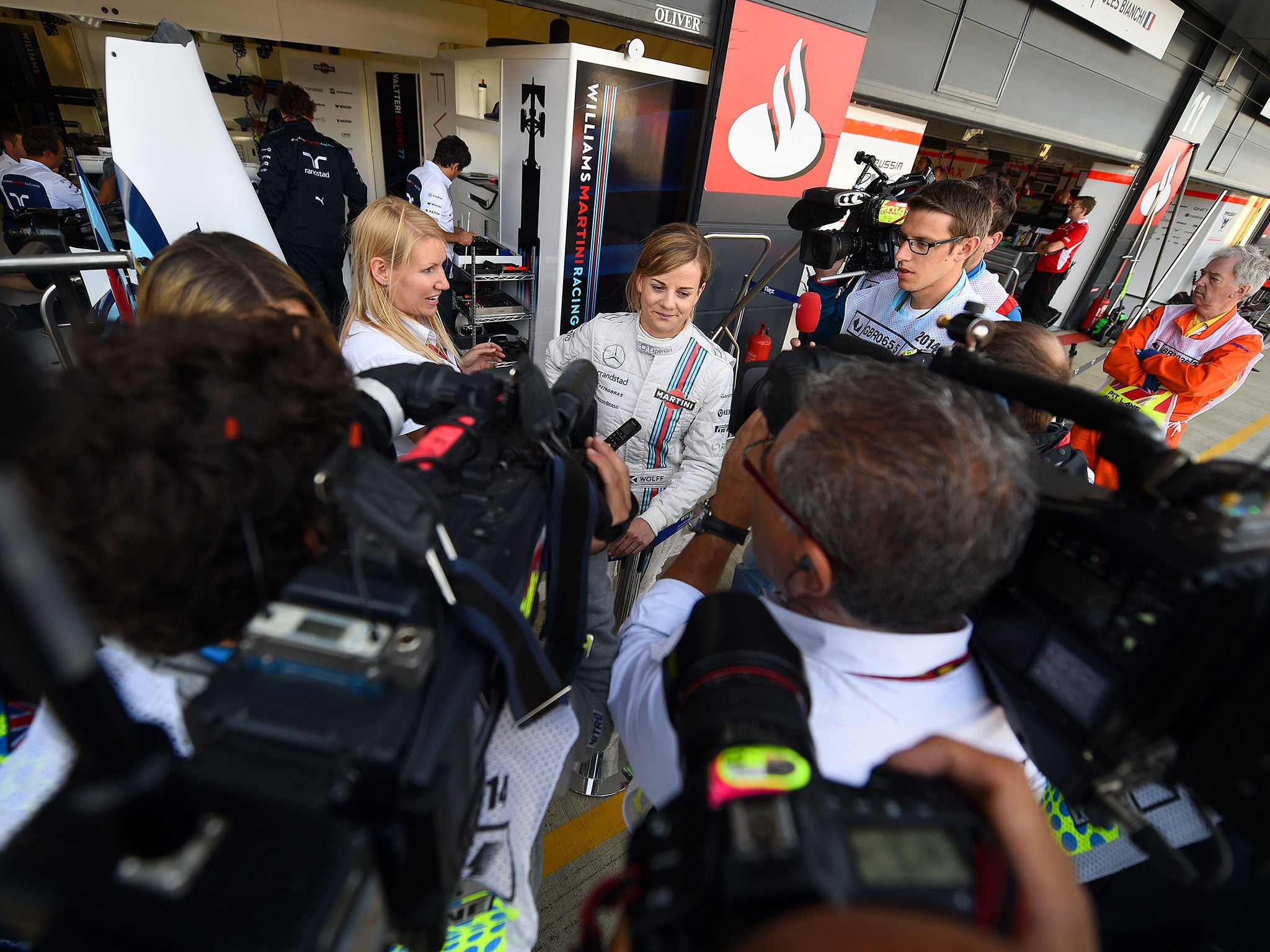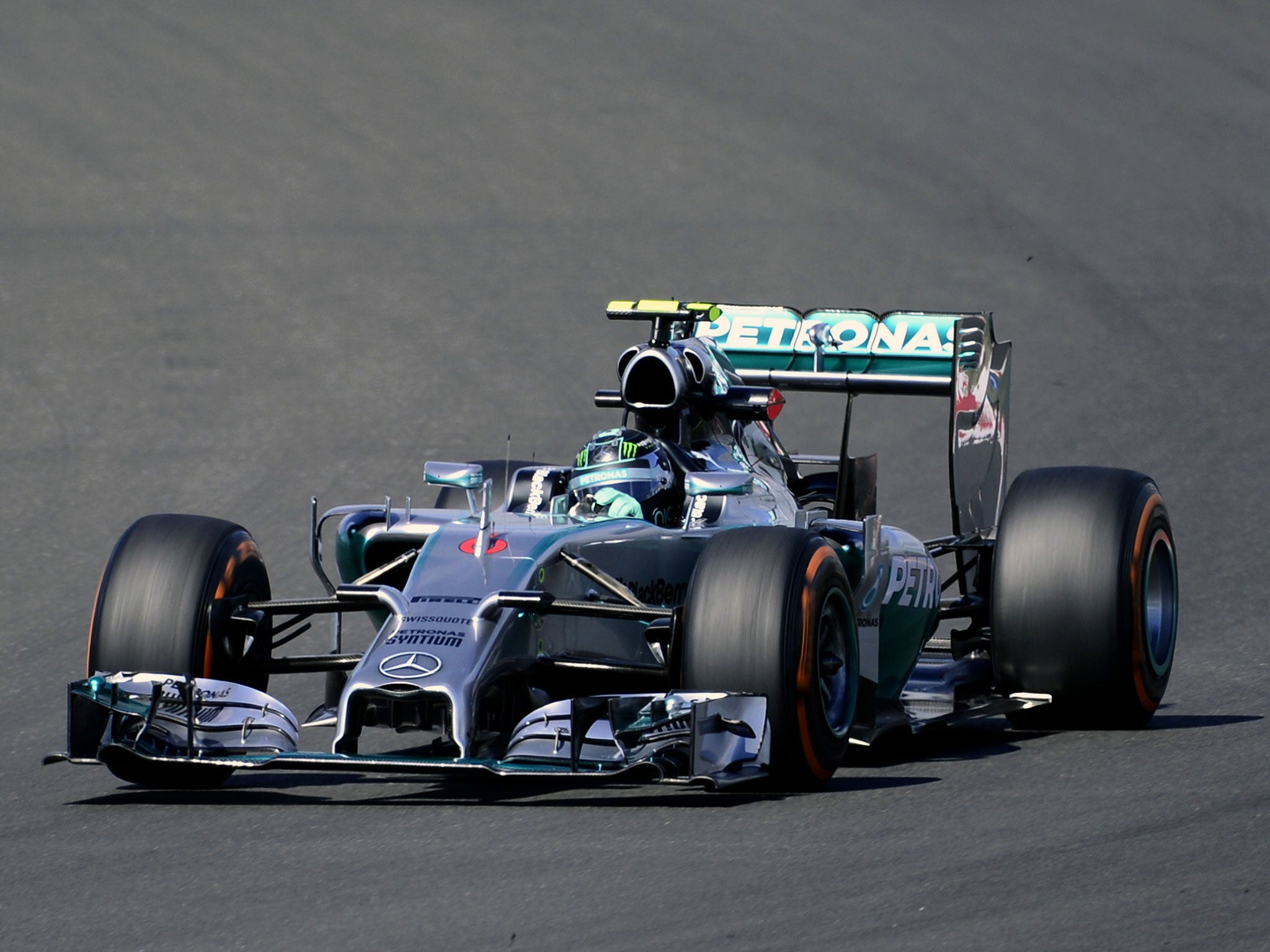British Grand Prix 2014: Susie Wolff the first woman to take part in a Formula One race weekend in 22 years
Wolff may have made history but it only lasted a disappointing four laps

The vexed question of women in motor sport went neither for nor aft at Silverstone, but, rather appositely, stalled four laps into a disappointing debut for Susie Wolff.
Her big moment in the first practice session of the British Grand Prix became a minor detail all too quickly when her Williams suffered mechanical failure. The timed lap she had set was two seconds down on her nearest rival and almost nine behind the early pace-setter Nico Rosberg – cue iron-age jokes about women drivers.
Just as well there is no reverse gear in an F1 car, sparing Wolff the standard automotive sexism associated with parking failures. “Really tough day but that's F1 sometimes,” the 31-year-old Scot said. "We had an oil-pressure problem, which cut the engine off.
"First of all a huge thank you for all the support I've had. Going out on the track was just the best feeling, because although there has been a lot of media around my run, when you put your helmet on that's the best..
"I had a good feeling out there in the car and I was looking forward to it. It turned out to be a very short run, but I have to keep my head up and look forward to Hockenheim. I felt very ready for today; the team had done a fantastic job of preparing me."
Once retired the camera went back to the more conventional embrace of women, the shot of the driver’s girlfriend standing dutifully at the back of the garage beneath oversized ear defenders while her man goes about his work.
These girls are unfailingly pretty inviting sociological questions about what is really going on when a woman is assessing a mate. The issue of appearance, the evidence suggests, matters more to the man of the species than the woman.
Whenever a female takes to a motor circuit there is inevitably a whiff of tokenism. Wolff, who will run again at the German Grand Prix in a fortnight, was the first on an F1 track since Brabham’s Giovanna Amati. She would take down any boy racer at the lights and, given the same exposure to car and circuit as those she was running against all-too briefly, would be more or less competitive.

But that message is not the one conveyed. The big problem for women is the lack of numbers at the base of the pyramid, stymied at the outset by cultural norms that do not encourage participation and that old chestnut, cost.
Wolff’s participation at a grand prix weekend extends the list of women drivers in the sport to six, but of them only two contested races, Maria Teresa de Filippis in the Fifties and Lella Lombardi in the Seventies.
Over in the United States Danica Patrick does a marvellous job of proving the viability of women as racing beings, regularly taking the fight to the men in the Nascar. That she is the only one is not a question of talent but opportunity.
Join our commenting forum
Join thought-provoking conversations, follow other Independent readers and see their replies
Comments
Bookmark popover
Removed from bookmarks